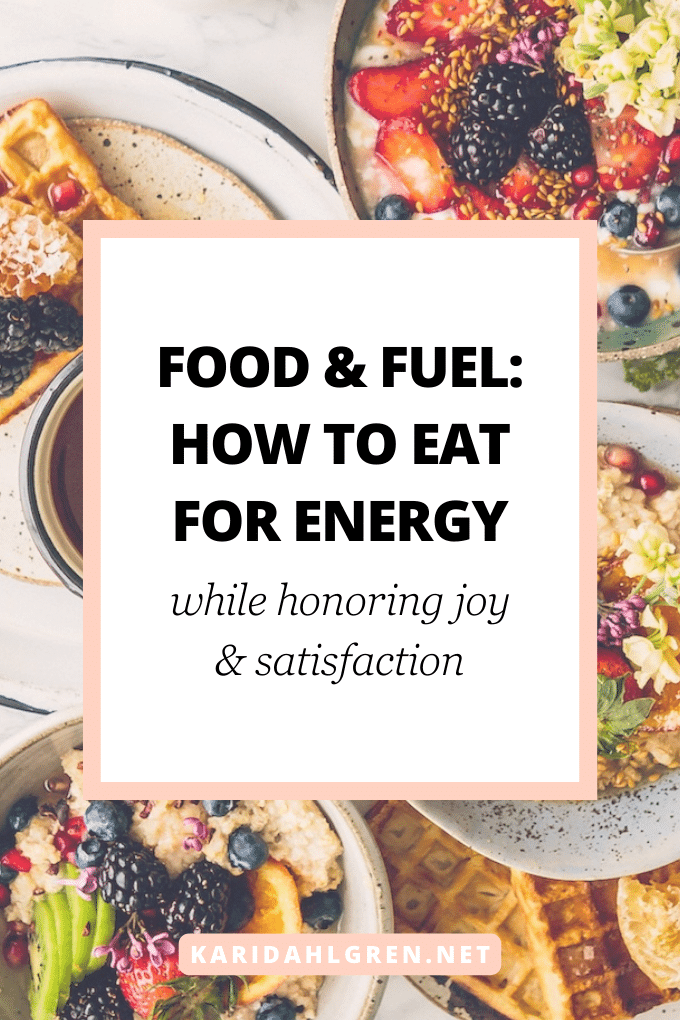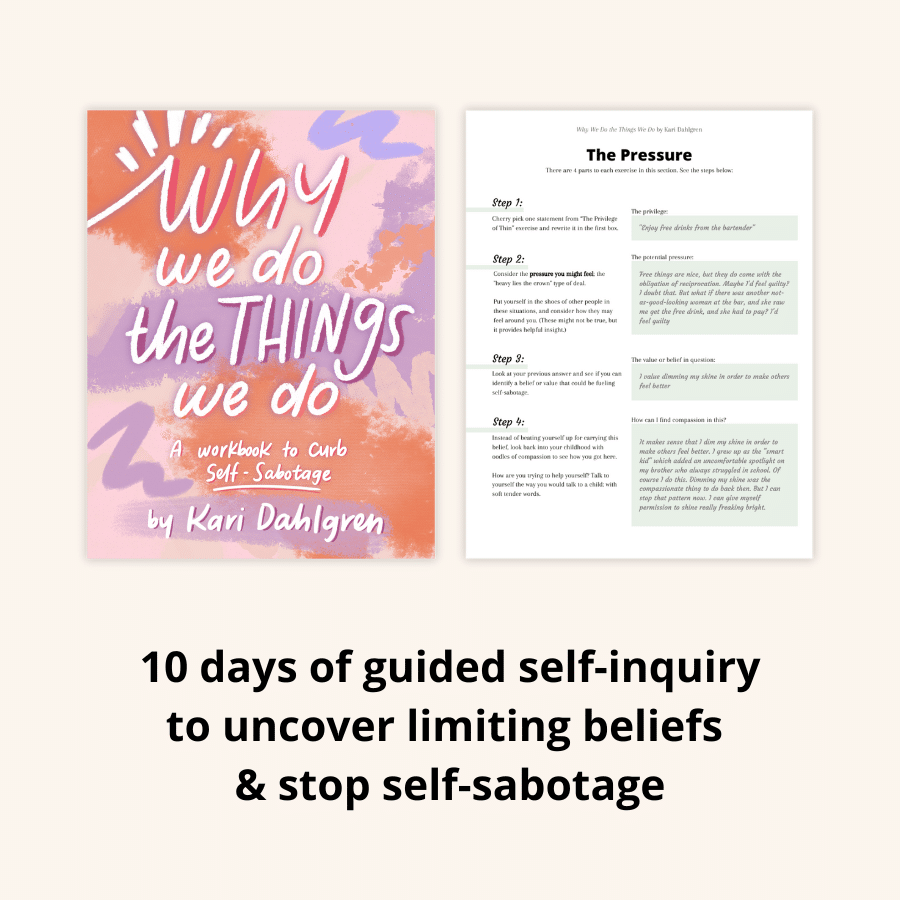
For many of us, years of dieting and rigid eating rules have transformed food from a source of nourishment into a source of anxiety. Instead of fueling our bodies, meals have become minefields of calorie counts and carb considerations.
But what if we could reclaim the true essence of food? Imagine viewing each meal as an opportunity to nourish and replenish, to fuel the day’s adventures, and to heal both body and mind.
This article is about rediscovering food as fuel—a powerful, positive force in our lives. It’s about breaking free from the chains of diet culture and learning to embrace eating as a joyful, healthful, and satisfying part of our daily lives.
How Food Is Used at Fuel: The Basics
Understanding the fundamental role of food not only shifts our approach from restrictive habits to nourishing our bodies effectively but also empowers us to make informed choices about how we refuel. Let’s dive into the basics of how our bodies utilize the food we consume for energy.
Here are the 3 macronutrients and how they contribute to fueling energy production:
- Carbohydrates are the primary fuel source for our brain and muscles, especially during high-intensity activities.
- Proteins are crucial for building and repairing tissues, and also serve as a fuel source when carbohydrates are depleted.
- Fats provide a concentrated energy source and are essential for the absorption of certain vitamins and for cellular health.
The cultural preoccupation with dieting often shifts our focus away from the nutritional benefits of food and fuel towards an overly simplified goal of weight loss, frequently at the expense of our health and well-being.
Diet culture can lead us to see food as an enemy rather than a vital source of energy and enjoyment.
In fact, one study highlights how restrained eating—limiting food intake to control weight—correlates with greater anxiety.[1] More importantly, it was found that the pleasure derived from eating can moderate this relationship, suggesting that enjoyment of food might buffer some of the psychological difficulties associated with dietary restriction.
This perspective encourages a more balanced and fulfilling approach to nutrition, where the words food and fuel become synonymous—all while honoring the pleasure and satisfaction we deserve from our eating experience.
The Consequences of Restricting Food and Fuel
The consequences of viewing food primarily as a dietary enemy—focusing on restriction rather than nutrition—can lead to various negative physical and psychological outcomes.
Here are some of the consequences of excessive dieting and viewing food as something to limit, restrict, and avoid:
- Disordered eating patterns: A longitudinal study found that excessive dieting significantly predicted the emergence of extreme weight loss behaviors, binge eating, and eating disorders.[2]
- Fatigue and low energy levels: Without sufficient caloric intake, the body is deprived of the energy it needs to function optimally. Without the necessary fuel, dieting often damages and slows metabolism.
- Metabolic slowing: Excessive dieting can significantly reduce resting metabolic rate (RMR), as evidenced by a study of participants from The Biggest Loser, who experienced a persistent decrease in RMR six years after significant weight loss.[3]
- Body dissatisfaction: Restrained and emotional eating are frequently linked to higher body dissatisfaction and lower self-esteem, suggesting a detrimental cycle perpetuated by excessive dieting practices.[4]
- Anxiety around food: Studies show that such restrained eating is associated with poorer psychological health and greater anxiety, underscoring the importance of pleasure in eating.[5]
On the flip side, embracing food as fuel, which includes appreciating the pleasure and joy that food can bring, has been shown to promote healthier eating habits and mental well-being.
Here are some of the benefits of rebuilding a positive relationship with food and fuel:
- Enjoyment of eating: Studies show that enjoying food not only improves dietary outcomes but can also buffer the negative impacts of diet culture, fostering a healthier approach to eating.[5]
- Stable metabolic rate: Maintaining a balanced diet helps preserve a consistent metabolic rate, crucial for efficient energy use and overall vitality.
- Better mental health: Cultivating a positive view of food reduces stress and anxiety around eating, contributing to better mental and emotional health.[6]
- Better body satisfaction: Eating based on internal cues of hunger and fullness rather than external dieting rules has been linked with higher self-esteem and body satisfaction.[7]
- Healthy eating habits: Seeing food as a source of fuel rather than something to be avoided and limited encourages more mindful eating practices and a balanced intake of nutrients.[8]
- Improved physical energy: Consistent and adequate nutrition ensures sustained energy levels, enhancing daily function and productivity.
- A healthy love of food: When food becomes not just a source of fuel but also an opportunity for pleasure, satisfaction, and even happiness, it can help rekindle a genuine love of food.
There are many benefits of embracing food as fuel. As we shift from viewing food solely as something to limit and restrict to seeing it as essential fuel for our bodies, it’s important to adopt practices that enhance this relationship.
Practical Tips for Implementing a Fuel-Focused Approach to Eating
Implementing a fuel-focused approach to eating involves tuning into your body’s natural cues and optimizing how and when you eat. It’s about using food for its most fundamental role—fuel—while honoring the pleasure and satisfaction that we need and deserve to have in our eating experiences.
Here are some practical tips to help you adopt a balanced approach to eating based on fuel instead of fear:
- Recognize Hunger Signals: Learn to identify signs of true hunger, such as a growling stomach or low energy levels, to guide when it’s time to refuel your body.
- Eat When You’re Hungry: Try to listen to your body’s internal cues and honor them. Eat when you’re hungry, stop when you’re full, and equip yourself with strategies for addressing compulsive eating when it’s hard to stop at fullness.
- Assess Cravings Thoughtfully: Sharpen the skill of differentiating between emotional and physical hunger by exercising curiosity at every meal. If you’re not truly hungry, find other ways to fulfill emotional needs without using food.
- Choose Foods that Satisfy: Select foods that fulfill both your nutritional needs and your taste preferences—that way you can avoid feeling full but unsatisfied after a meal, which can otherwise trigger overeating.
- Start Meals Mindfully: Before you begin eating, take a moment to assess your hunger level on a scale from 1 to 10 to gauge how much fuel your body needs at that moment.
- Eat Slowly: When you eat too fast, your body has a hard time registering feelings of fullness. Eating slowly helps you better recognize when you are full, preventing overfueling and aiding in proper digestion.
- Check in Mid-Meal: Halfway through your meal, pause to assess your fullness. This can help you decide whether you need more fuel or if you’ve had enough.
- Enjoy Regular Meal Times: Eating at consistent times throughout the day helps stabilize blood sugar levels and maintain a steady fuel supply for your body.
- Balance Macronutrients: Each meal should include a balanced mix of carbohydrates, proteins, and fats to maximize energy and maintain satiety.
- Plan Ahead: Prepare meals and snacks in advance to avoid last-minute decisions that might not align with your fuel-focused goals.
- Adjust Based on Activity: If you’re more active, plan to have a snack or meal that includes more carbohydrates and proteins for energy and recovery.
These strategies not only promote a healthy relationship with food but also ensure that your body is adequately fueled for both daily activities and optimal health. By focusing on eating to fuel and nourish your body, rather than restricting food intake to achieve thinness, you pave the way for improved physical and mental well-being.
Enjoying Food and Utilizing Fuel
The challenges posed by years of restrictive eating can indeed be daunting, but the path to healing is paved with the joy of eating. It’s not just about using food as fuel, but also about fostering the pleasure and satisfaction that we all deserve to get from the eating experience.
By choosing to see food as a friend rather than a foe, we open up a world of possibilities where meals fuel not just our bodies, but our spirits too. If you’re interested in a psycho-spiritual approach to healing your relationship with food, my free resources below are right up your alley:



